Ep. 110: The Yakuza's Bias, by Teki Yatsuda
Back to the Yakuza Comedy Well, for a Manga About Korean Pop Music...?
See what happens when a stoic yakuza gets sucked into the world of K-Pop in The Yakuza’s Bias, a hilarious culture clash between the manly men of the mob and glamly men of Korean boy bands. BUT WILL CHIP LIKE IT TOO? Find out!
Listen, Subscribe, and Review the Podcast:
Google | Apple | Stitcher | RedCircle | Amazon | Radio Public | PocketCast | Spotify
IN THIS EPISODE
01:00 The Yakuza’s Bias vol. 1
53:55 THE BREAK
54:30 SHOUT-OUTS! This week we manage to shout out about a dozen things, from movies to manga and other cool stuff
The Yakuza’s Bias Vol. 1
by Teki Yatsuda
Translated by Max Greenway
Lettering by Nicole Roderick
Editor: Maggie Le
Published by Kodansha. Available in print / digital
Read the first chapter for free: https://kodansha.us/series/the-yakuzas-bias
Audio editing by David Brothers. Show notes by Christopher Woodrow-Butcher and Deb Aoki
BEFORE WE GET STARTED
We’ve actually done quite a few yakuza manga, starting with Way of the Househusband allll the way back in episode 8. We also talked about another “thug life” manga with a spicier romantic vibe, with Yakuza Lover back in Episode 19, as a “manga blind date” feature. We reference both of those titles this week and a few more as well, too!
Also, Spoilers for Yakuza’s Bias volume 1… and frankly some of volume 2 as well. It’s a spoilery episode.
ABOUT TEKI YATSUDA
There isn’t a lot of biographical info about Teki Yatsuda in English (sorry!) although we do know that their birthday is March 27, and they’re active on both X/Twitter @yatsuda_tk and on Pixiv, where The Yakuza’s Bias is also featured as part of Pixiv / Ichijinsha’s Comic Pool web magazine. Comic Pool is also the original home of another Mangasplaining pick, Wotakoi: Love is Hard for Otaku (episode 42). Incidentally, Ichijinsha was purchased by Kodansha in 2016, and is now a subsidiary of Kodansha.
A notable thing about The Yakuza’s Bias is that it’s a hit in South Korea too! It won a RIDI Award, which recognizes the most popular webtoons, comics and webnovels with readers in South Korea. It’s given out by webtoon publisher/eBook platform company RIDI (which is also the parent company of webtoon app Manta). The Yakuza’s Bias got picked as Best New Work in 2022 – a feat that was documented in this charming tweet.
Perhaps even more surprising, in between when we recorded this episode and when this episode is going live, Yakuza’s Bias was selected as one of the “50 Best New Comics of 2023 for Adults” by The New York Public Library! It looks like this is a series that really caught hold of the zeitgeist this year!
Before creating The Yakuza’s Bias, Teki Yatsuda primarily created boys love manga, including A Home Far Away (Haruka Tooki Ie), a 2020 short story originally serialized in Canna, a boys love magazine from Printemps Shuppan. It’s published in English by Kuma, Denpa Books’ BL imprint. This one-shot manga is set in 1990’s North America, and is about a young man from a religious family who finds comfort and a new way of life when he meets a free-spirited young man who introduces him to a sense of freedom and acceptance that he’s never experienced before.
Yatsuda’s most recent release, Kami no fune de Nemuru (Sleep in a Paper Boat), is a 2-volume BL story set in postwar Japan about a screenwriter who’s going through a creative crisis and a photographer. It too was serialized in Canna, and is full of very nice-looking guys, but its somber, tragic love story plot description seems… well, maybe not as funny as The Yakuza’s Bias? Just sayin’. While this latest series isn’t yet available in English yet, here’s hoping, right?
ABOUT THE YAKUZA’S BIAS
Let’s kick things off with the description for this book from Kodansha:
A yakuza enforcer becomes the gang world’s biggest K-pop stan in this cult comedy manga that went from webcomic to sleeper hit in Japan! Perfect for fans of Way of the Househusband, Phantom of the Idol, or Spy x Family.
Ken Kanashiro is one of the top lieutenants in the feared yakuza outfit the Washio Clan. He lives his life by the code of the Japanese underworld, where nothing is more important than loyalty, and ties between soldiers and their aniki are sacred bonds. Ken’s never had time for hobbies… until the boss’s only daughter Megumi drags him to a K-pop concert, and he sees the glittering, charismatic Jun for the first time. Smitten like a new recruit on his first job, Ken plunges into fandom with the solemnity and passion only a true man who walks the way of the yakuza could muster.
Kodansha
01:30 One thing that becomes clear pretty quickly is that The Yakuza’s Bias is chock-full of terminology specific to K-Pop, or Korean Popular Music (typified by bands like BTS and BlackPink).
Right in the title, the usage of the word “bias” is not entirely grammatically correct as the English word “bias” is on loan to Japan and Korea, and mean’s “most favorite” (“with the intensity of a burning sun”). Other terms like “The Showcase,” to refer to an ‘advance screening’ of a song to a select group of fans before it’s widely released, or “The Killing Part,” which refers to the moment when the performer in group sings/dances the part of the song that is the most memorable, most catchy, overwhelm-the-fans-because-you’re-so-hot moment of the song/video/performance.
You don’t NEED to know these terms to enjoy the manga, some of them are explained either directly or through context in the story, but if you’re already a fan of K-Pop music there’s a ton of extra texture in this manga to enjoy.
We talk a little bit about how this isn’t drawn quite as well as our first Yakuza comedy, Way of the Househusband…

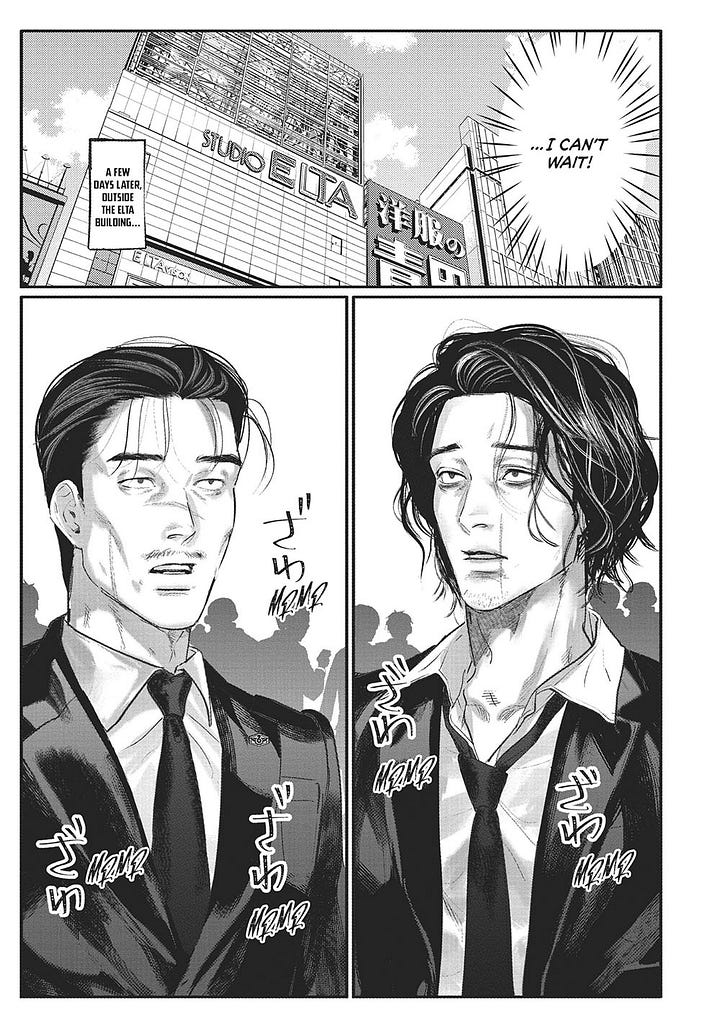
It’s funny, because there are some stunning illustrations in this book, but they tend to be when focusing on cute boys. It suddenly made a LOT of sense when Deb said that Yatsuda-san comes from the world of BL manga, because she seems to enjoy drawing those boys the best.
04:40 Chris here. So there are a ton of really fun scenes in The Yakuza’s Bias, and we toss off a LOT of references. As always, I want to balance showing you what we’re talking about to provide context with uh… not giving away the whole book here in the comments too. We wanna stay on the right side of “Fair Use.” So please forgive me in advance if we reference a scene and it isn’t here in the show notes.
That said, here’s the “Hostage Trade” gag David mentions. 😉
05:30 I’m not the biggest cinephile, as I think this podcast has established (lol) but I did have my phases, and that included a whole trip through John Woo’s filmography in my teens and 20s. In particular, I felt like there was something going on in addition to ‘brotherhood’ in the cop/yakuza/bullet ballet/Gun-Fu film Hard Boiled, starring Chow Yun Fat and Tony Leung. Well I wasn’t alone in that, you can read this short article about it at Slash/Film.
Which is to say, we talk a lot about “masculinity” in this episode, and I think all of us understand that it doesn’t dis-include homoeroticism and homosexuality, even when this book doesn’t choose to focus on that explicitly. We do have a few short conversations about how boys and girls are ‘allowed’ to like things differently… But, well, you’ll understand as you listen, there’s other stuff going on here, including choosing traditionally feminine and queer spaces and methods to express ‘manly’ feelings. It’s a pretty deft book at times.
6:21 Chip’s favourite funny part in The Yakuza’s Bias is when Ken gets that super-intense dead-eyed look on his face. It happens a few times, but particularly when he says that “Jun’s more cool than pretty.”
Also, another top-notch moment is when his enemy finally ‘understands’ and then gets into the boy band.
8:20 So yeah, Deb had been mentioning this title for months (The Yakuza’s Bias made its way into our shout-outs more than once over the last year), and so I finally tried it and… bounced off of it so hard. By the time I got to this sequence:
I just had no idea, at all, what was going on. Maybe I was in a bad mood? Or distracted? Or it didn’t measure up to my ideas of what it would be? Regardless, my second try at this manga went much better.
11:00 SPOILERS FOR VOLUME 2: Yeah, there’s just an amazing fight sequence in The Yakuza’s Bias volume 2 that’s so dumb, it reminded me of the Yakuza video games.
Also, Nausicaa has become a running gag here on the podcast, as it’s one of my favourites. I recommended it early, but everyone else, uh, bounced off of it pretty hard. Maybe THEY were just all in bad moods that day? Bad moods… caused by Nausicaa?
12:50 I think we’ve referenced the “meat” gag trope in shonen manga before here on the podcast. The meat gag in manga and anime is real.
14:00 So one of my most recent touchpoints for yakuza culture are the Yakuza games, which started out as pretty accurate, showed what life is really like inside the yakuza and in the seedy underbelly of Shinjuku Kabukicho, Tokyo’s infamous red light district. In the game, you take on the role of a yakuza thug, and it’s apparently so accurate and well-loved, that many very famous yakuza film actors joined the franchise to play thinly-veiled versions of themselves… and “maybe” even some real criminals got involved with the series.
It still had a lot of flare though. There’s a lot of over-the-top flashiness in the game, like having to remove your shirt in order to fight your boss. Dating sims, weird sex stuff, rock n roll, and y’know, stuff like that.
However, as the Yakuza game series has gone on, things have gotten, uh, different, and bigger. Kazuma’s rival, the completely insane Majima goes full “The Joker in Arkham Asylum.” The ‘reality’ of the series has slowly but surely turned to ‘surreallity’, with many more ‘diversions’ entering the series. And then more, and more, and more, diversions, until finally the most recent Yakuza game is, well, it’s this:
Also very good, though.
Anyway, it’s pretty clear that Yatsuda-sensei is probably aware of this too, as there are both larger references (and the occasional game reference) in this book. Not to mention the references that David mentions to manga Gambling Apocalypse Kaiji by Nobuyuki Fukumoto (available from Denpa), and the manga Golgo 13, by Takao Saito (available as a 13-volume “best of” collection from VIZ Media).
14:55 One of the very funny and subtle visual gags in this series is when the framed clan motto is taken off the wall and put on the floor because it’s replaced with posters of the K-pop boys.
16:30 We go over the “Buy your way into fandom” trope in J-POP and KPOP in our episode on The Untouchable Midori-kun, which has some similarities to this book.
By the way, since this episode that series has ended, and I’m excited to read the last two volumes!
17:25 So in yakuza lore, the “cup of brotherhood” is when two men who are drinking together exchange glasses, affirming and tightening their relationship as “sworn brothers.”
In most yakuza media, this happens shortly before the two men need to kill each other for some reason, so it’s probably good that Jun didn’t drink from Ken’s make-shift cup, a water bottle.
20:33 Heh, this is a good running gag…
22:05 The daughter has real Kakkuguri vibes.
25:09 As a New Kids On The Block aside (NKOTB to their fans), I have personally enjoyed seeing the hardest-core NKOTB fans from my grade school days grow to deny that they ever liked that band (despite being, uh, into them) and then when they went on a reunion tour a few years back, re-embrace everything publicly. We all like stuff when we’re young, best to just embrace it and try not to be too embarrassed.
25:35 That’s a good question! Hey K-POP fans, does The Yakuza’s Bias resonate with you? Or does it hit too close to home? Let us know in the comments!
26:50 David’s Newsletter is going away because TinyLetter is going away. If you want to subscribe, well, you might just still have time: https://tinyletter.com/superdavidbros
29:00 Deb sidetracks to hate on Bieber and Spice Girls for a while. So here’s like, probably why?
32:10 The team mentions a documentary about a guy who goes to see the Spice Girls at every single stop on their reunion tour. I’m pretty sure that’s comedian and writer David Montgomery, who wrote about this and where it comes from and it’s really fascinating.
https://www.huffingtonpost.co.uk/entry/spice-girls-reunion-tour-the-moth_uk_5c8bcde2e4b03e83bdc06dcb
https://www.facebook.com/watch/?v=372296470035254
This was great, so glad Deb shared this with us!
33:29 Here’s that Lauren Mayberry (CHVRCHES) cover of Madonna’s Like a Prayer, probably from the exact show that David was at! Pretty good!
34:30 Man, I can’t believe I have to explain Love Live, Idol Master, and AKB48.
The Idolmaster is a Japanese media franchise that began in 2005, starting with a life sim/rhythm game. You play the role of a producer at a talent agency who works with young women who want to become pop idols, training them for stardom by… controlling every aspect of their life. Each of the girls has their own style, personality archetype, and backstory, allowing the player to pick a favourite. Weirdly, all the girls have the same face.
Love Live is an anime and sim video game franchise that started in 2010. It focuses on teenage girls becoming “school idols” as an extracurricular club, singing, dancing, and choreographing everything together. The competition for the best school idol competition in Japan is called “Love Live”, and these girls that you follow in the anime or play in the video game have to make it to Love Live, and then win. Each of the girls has their own style, personality archetype, and backstory, allowing the viewer to pick a favourite. Weirdly, all the girls have the same face.
AKB48 is the explosion of the pop-idol concept, where the band features 48 pop idols (in three groups of 16 girls, A, K, & B) that perform together. The girls are pop idols, but are also competing with each other to become top pop idols? They’re sort of infamous for popularizing (if not inventing) the “vote with your wallet” style of CD buying in Japan, where buying specific CDs might get you the ability to meet individual members of the group at “Handshake Events” and also these sales would move members of the group up and down the rankings. It’s… a whole thing, the most conspicuous consumerism.
As for that anecdote about the late Kentaro Miura, author of Berserk? Well reddit explains.
“…Miura mentioned that he bought Idol Master at the same time that Berserk was going to have a break in publishing. Some weird Japanese culture blog made a posts about how Miura was taking a break from Berserk because he wanted to play Idol Master. This happened a few more times after each time the releases went on a break…”
So let’s say a rumor, at best. 🙂
40:20 Bottle Service at the hostess club? Basically, hostess clubs and bars are a place where you can go (if you’re a dude, generally) and pay a lady to be nice to you and drink with you. You, of course, will buy her very expensive drinks as well, which is how she (and the club) make money. There may be other services on offer too. This is actually pretty ground-level stuff in Japan, with a hostess club of some description usually found just a few steps from more-or-less every train station. They don’t generally amidt foreigners because foreigners don’t usually know the score, but it’s not… Impossible.
Which is all to say that of course the Yakuza video games mentioned above have a “mini-game” where you need to successfully romance a hostess at a hostess club.
Chip, though, didn’t need ANY of this instruction at all, because he knows all about it, thanks to Tokyo Vice, a show about the Tokyo underworld based on a book by Jake Adelstein. Season 1 was apparently pretty good, and Season 2 is set to debut next month.
Enka music is basically the Japanese equivalent of “country” or “blues” music. It’s old-timey music that recalls days gone by. You can see the song (and film) that David mentions in the trailer below, Tokyo Drifter, directed by Seijun Suzuki.
41:40 Here’s that car the mangaka didn’t love drawing.
43:00 And now it’s time for “Little Brothers” a.k.a. “Sweat the Small Stuff,” where David notices fun stuff in the backgrounds and tiny details.
Page 32 Here’s that reference to Pop Team Epic, which we covered on the podcast this season.
And when this page of an adorable idol deliberately gaining weight so his body has more room to have his fans’ names tattooed on him, the sound effect used to show him getting bigger? CHUBB! And of course, that sound effect uses lettering that evokes the manga Kinnikuman, also known in the U.S. as Ultimate Muscle! It’s a great visual gag, kudos to the lettering team.
48:02 What is Camp? Well, Rupaul says that “You need to see the absurdity of life outside of yourself, and be able to laugh at the absurdity.” That’s a take! Susan Sontag defined the term in the essay “Notes on Camp.” It’s doing something that is deliberately failed seriousness.
Of course, its that last definition, failed seriousness, that best describes Charlton Heston being the only one in the film Ben Hur not in on the joke that this is a very homosexual, homoerotic, and camp film.
Here’s Gore Vidal talking about writing Ben Hur in the documentary The Celluloid Closet.
Of course, camp is rife in anime, as is a certain brand of queer camp. And for that, we can’t go anywhere else than ‘straight’ to Golden Kamuy, based on the manga by Satoru Noda.
And that’s a pretty good note to go out on this week! Lots more in the shout-outs, though!
53:55 THE BREAK
It’s time for SHOUT-OUTS!
For DAVID’s first shout-out, he expresses a bit of a Yakuza’s Bias towards the film Cops vs. Thugs, directed by Kinji Fukasaku, and starring Bunda Sugawara.
There’s even a comic connection, with artist Ian McEwan illustrating the Blu-Ray cover from Arrow Video.
CHIP shouts out books he was in the midst of, and isn’t sure he actually recommends. He likes Michael Mann’s HEAT 2, a sequel to the contemporary classic film. He also recommends Naomi Klein’s Doppelgänger, maybe, about culture. We checked in with Chip to get a final verdict…
“Heat 2 is a banger, but also quite long, so not exactly a breezy beach read heist novel.”
And Doppelgänger actually gets discussed on our next episode, no spoilers.
But in a fit of pique, Chip then recommends Apple TV’s THE AFTERPARTY.
CHRISTOPHER shouts out Tokyo, a great city! You meet such interesting people.
Anyway, check out Monster by Naoki Urasawa.
Just as an aside: ”How did guys like this stuff back in the 1600s?” Not the 1600s but Kate Beaton made an amazing comic about Jules Verne writing a fan letter to Edgar Allan Poe in the 1800s, that I think about a lot.
Haha, of course. Of course. Here’s the exact video we talked about, every scene with Domino in it from Deadpool 2.
At Wikipedia and in his graphic novel Spent, you can read about Joe Matt obsessively editing dudes out of his porn tapes.
DEB mentions Stray Kids, a Korean musical group who had a performance inspired by the Deadpool movies, that Ryan Reynolds then became a fan of, and apparently they’re gonna be in Deadpool 3 now?
Yeah. Can’t stress enough how big Deadpool was in Asia. Just massive. It’s why there’s a Deadpool manga, which David edited for VIZ Media. We did an episode on it, go check it out. We actually also talked about it on a previous episode of Mangasplaining – go listen to our “Manga Blind Date” feature as part of Episode 50, Our Dining Table.
DEB’s actual shout-outs are:
Capeta by Masahito Sota, the creator of Firefighter Daigo (a forgotten gem of a manga previously published by now WAY out of print from VIZ Media). Capeta is about a boy who gets into go-karts as a kid, and follows him through his racing career, all the way to his entry into the pinnacle of the sport, Formula 1 racing. It’s currently available digitally only on Kodansha’s K-Manga app.
Reading Capeta got Deb to check out the Netflix documentary series about Formula 1, Drive to Survive, which is basically like a sports manga, but it’s about real people in a real sport, but filmed in a way that makes you like, care about the people behind the wheel and the mechanics, engineers and race team owners. If you want to get some insight into Lewis Hamilton, watch him on Graham Norton. For now though, here’s the trailer for that documentary:
DEB then comes back around and recommends the manga Girl Crush on Comikey. It too is about K-Pop, from a Japanese manga creator’s point of view! In this story, two high school girls from Japan go to Seoul and get recruited to go through some intense training with a talent agency that might or might not get them a spot in the next great girl group. The art is fantastic and the story is addictive.
And also Firefly Wedding, another hidden gem of a manga on Comikey. Originally published by Shueisha, it’s about a somewhat unhinged sociopath bodyguard who somehow becomes romantically entangled with a fragile but gorgeous young woman from a well-to-do family. It sounds dysfunctional, but it is a compelling and exciting mix of romance and action that leaves you guessing what will happen next.
Chris also mentions MangasplainingExtra.com (thanks for being subscribers, folks!), so go read Search and Destroy and Wandering Cat’s Cage.
And that’s this week in Mangasplaining! This episode is also available wherever you get your podcasts, so please subscribe and leave a review, so others can discover our show.
Also, if you’d like to get the latest episode delivered straight to your inbox along with exclusive interviews, articles and new chapters of manga you can’t read anywhere else, subscribe to our Substack newsletter. See what you’re missing at Mangasplaining Extra!
Next week on Mangasplaining:
Get ready for our episode Heavenly Delusion vol. 1, by Masakazu Ishiguro, from Denpa.
Thanks so much for listening! Please support your local comic and manga specialty shop when purchasing these books, and you can find one near you at comicshoplocator.com. You can also check your local library for print and digital lending options, they have TONS of manga! Finally, thanks to D.A.D.S. for their musical accompaniment for this episode.

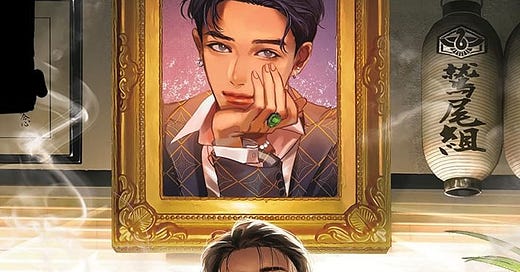


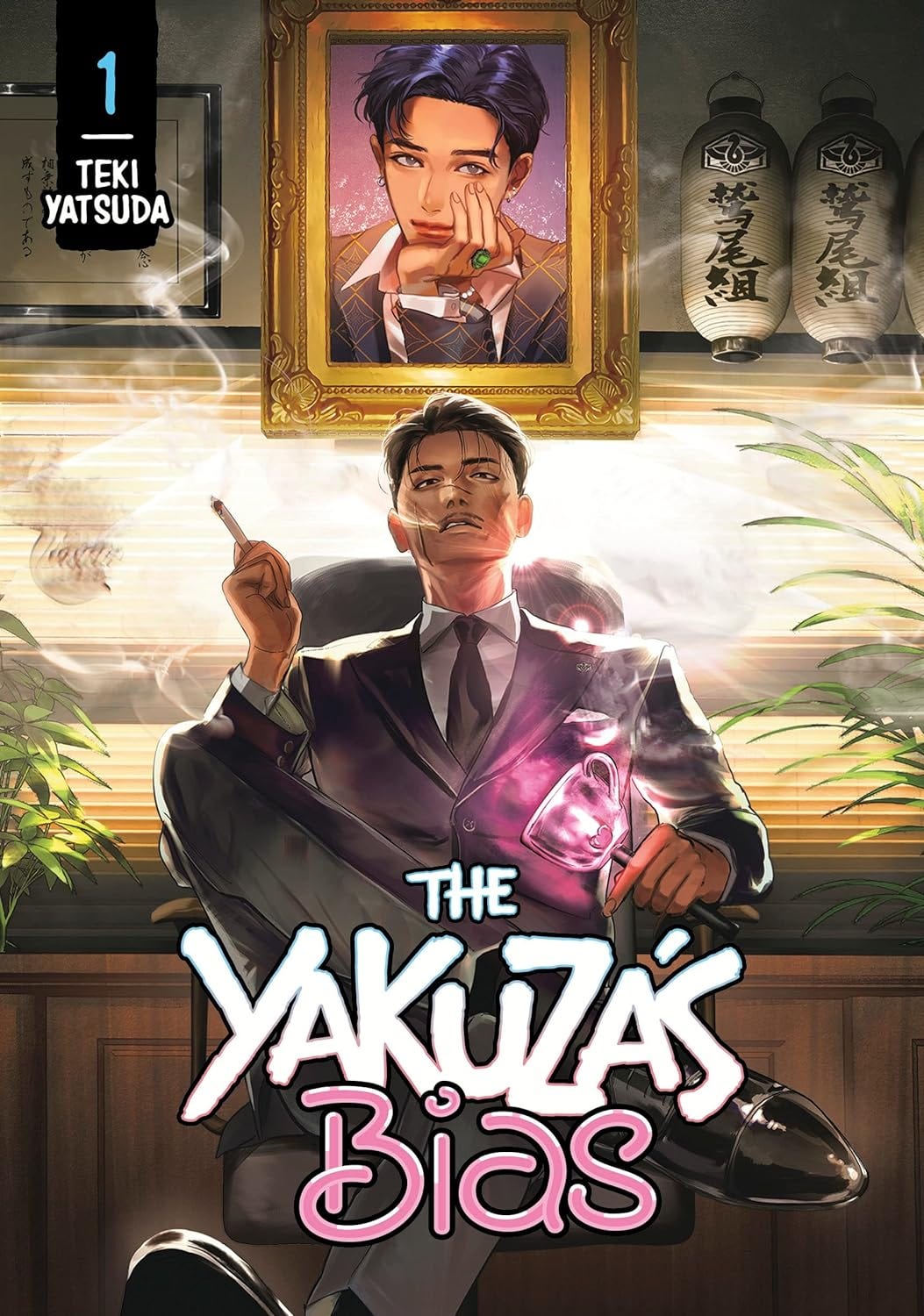


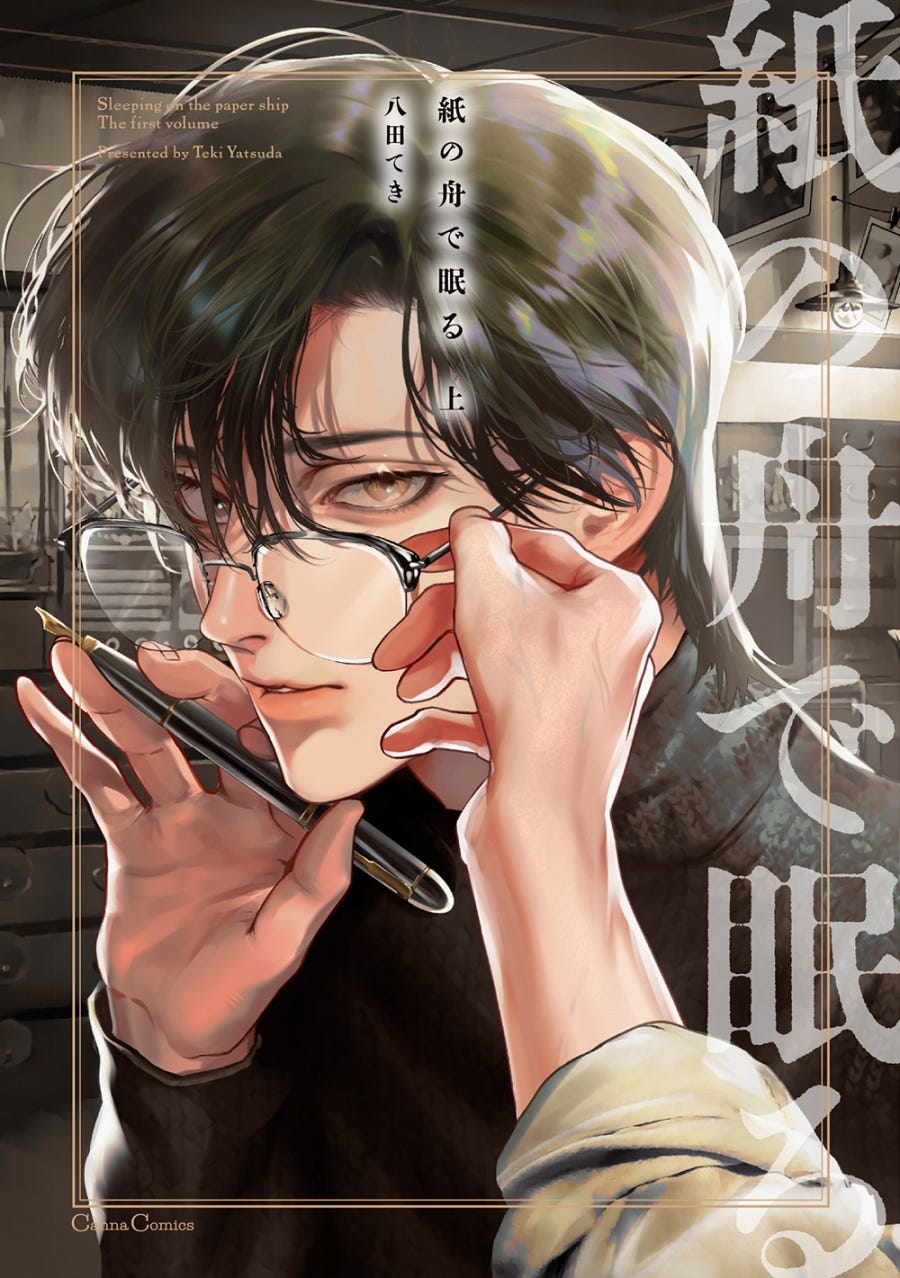

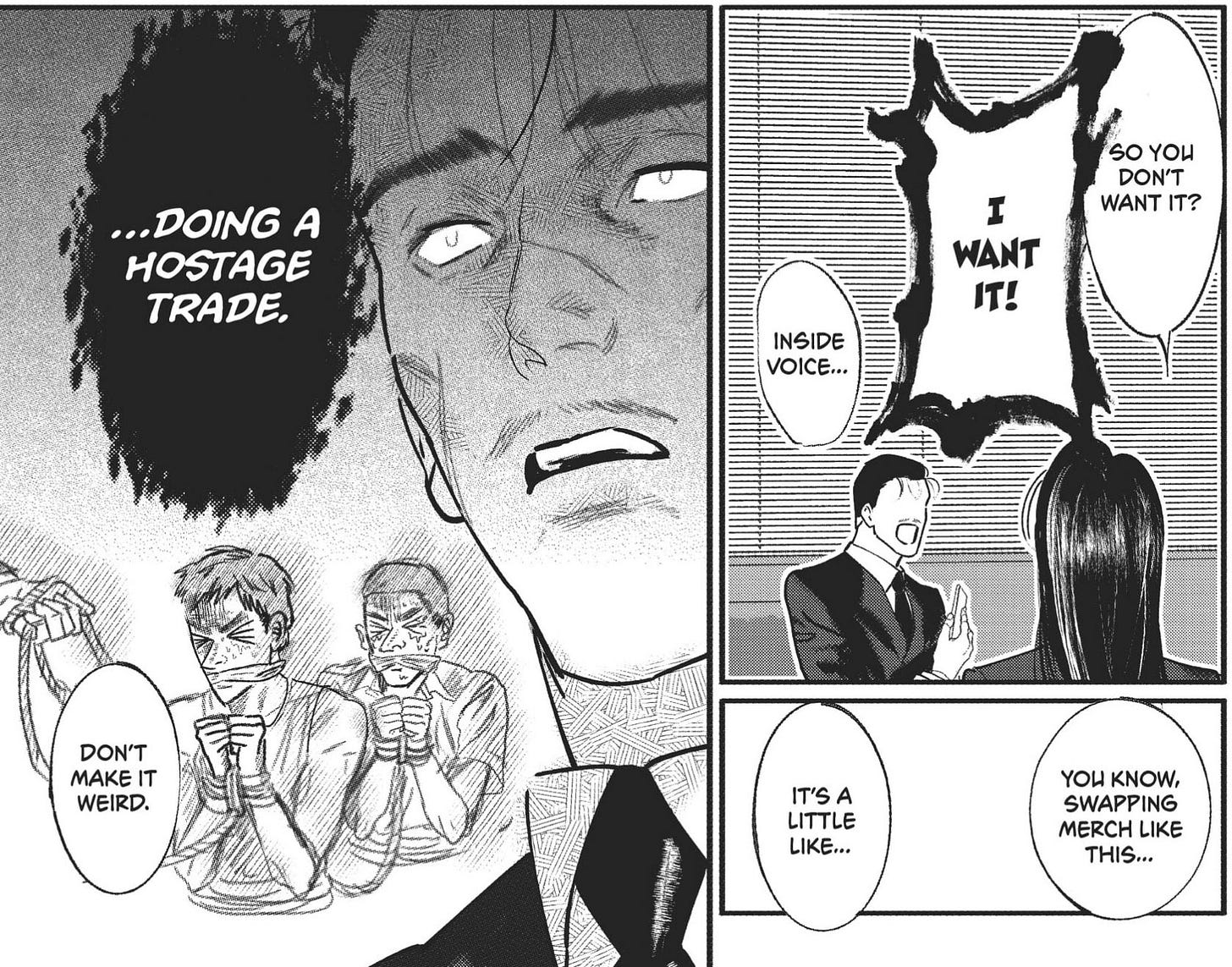
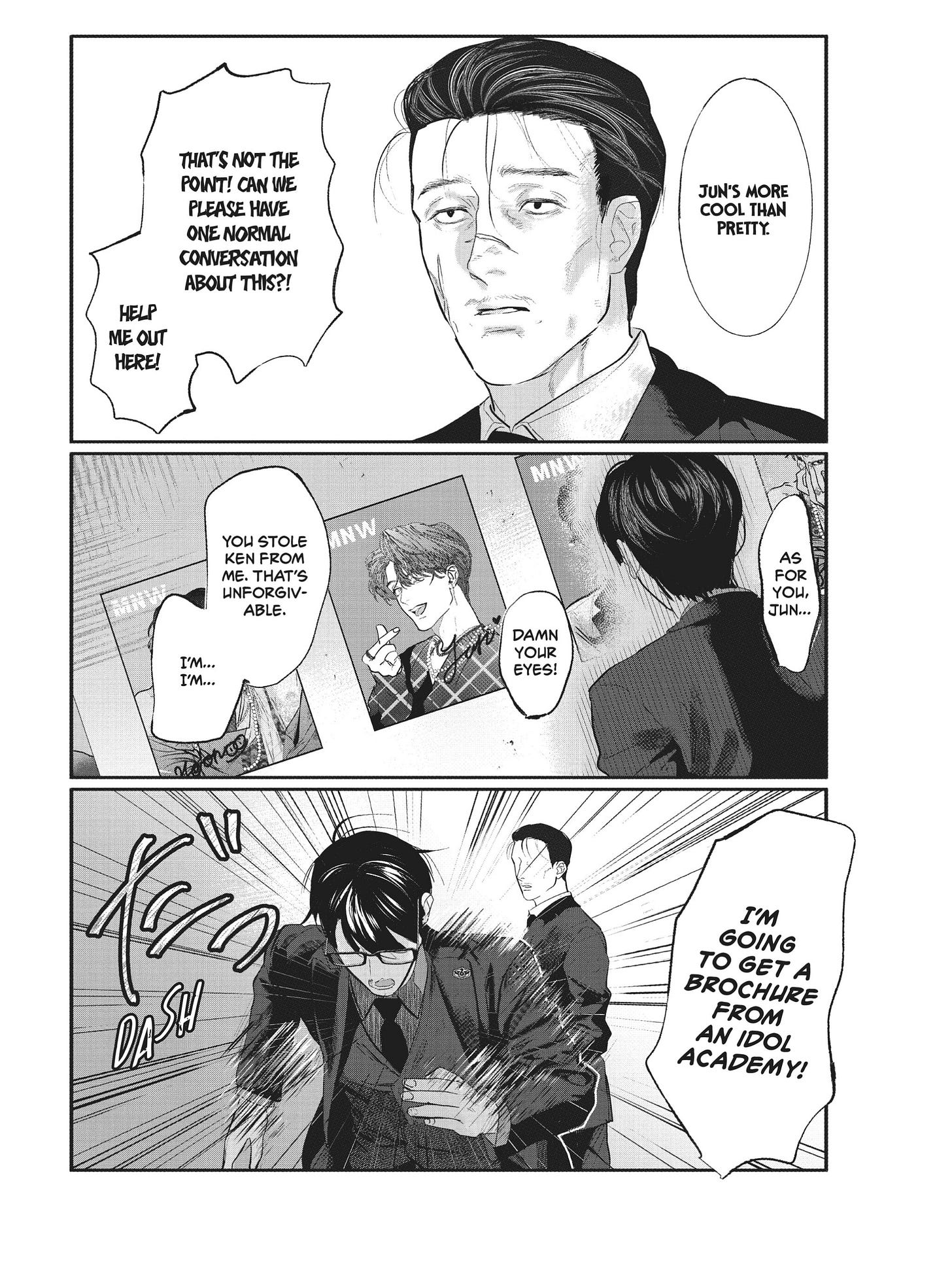

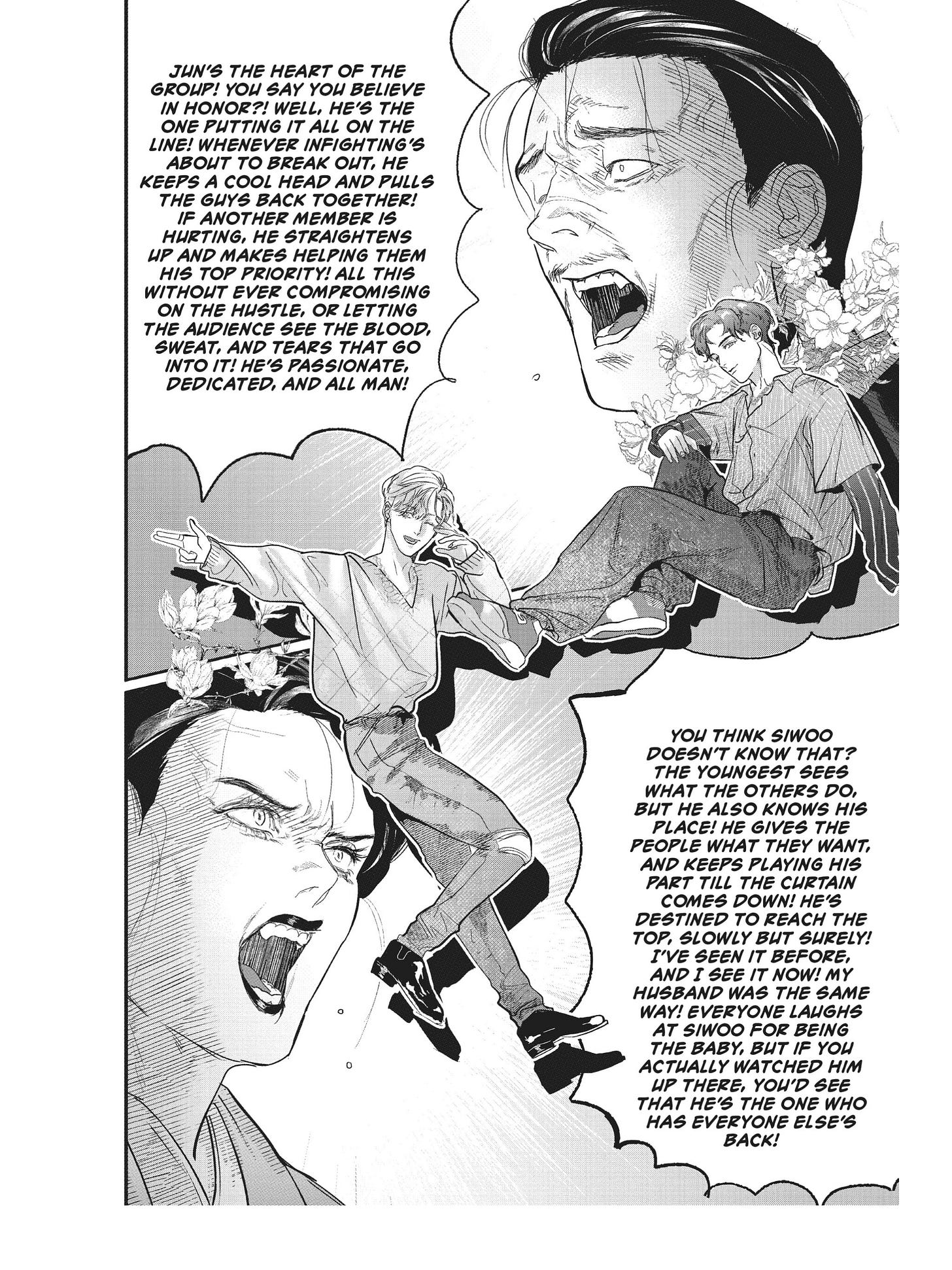




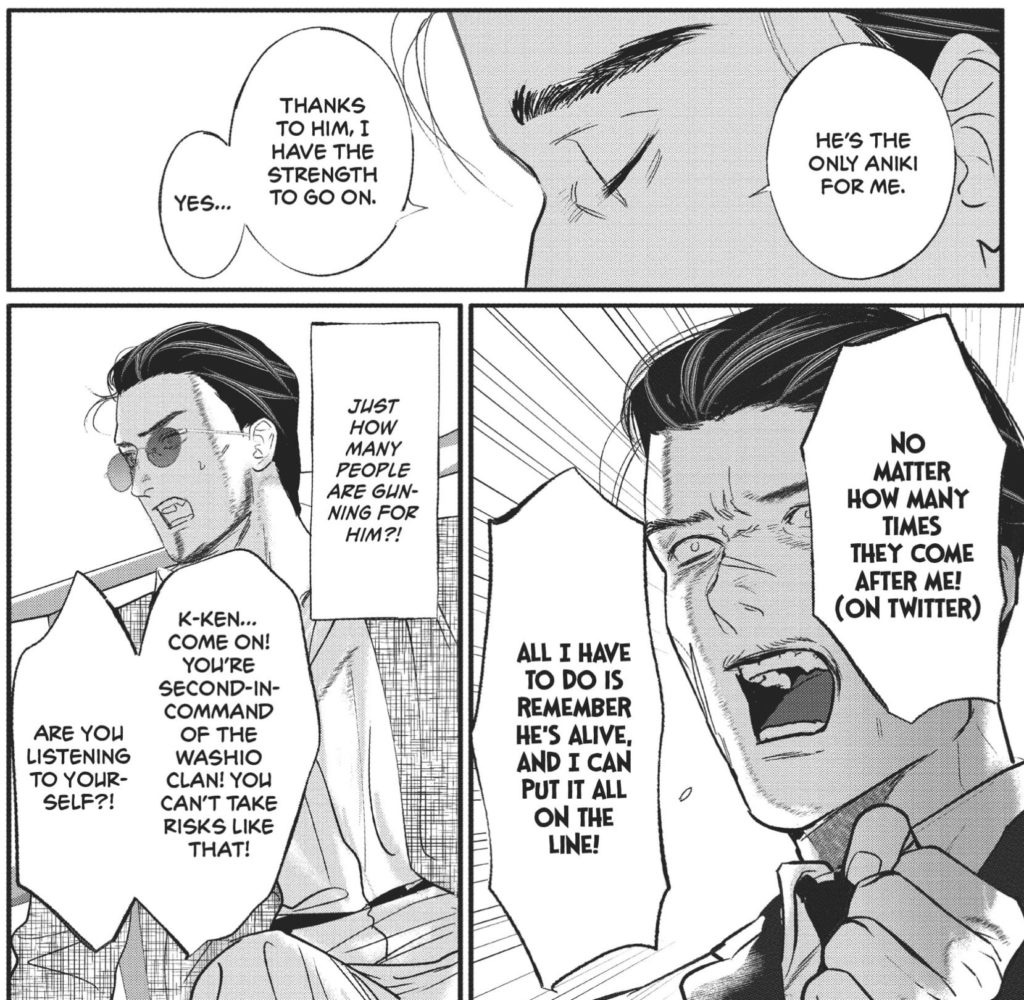
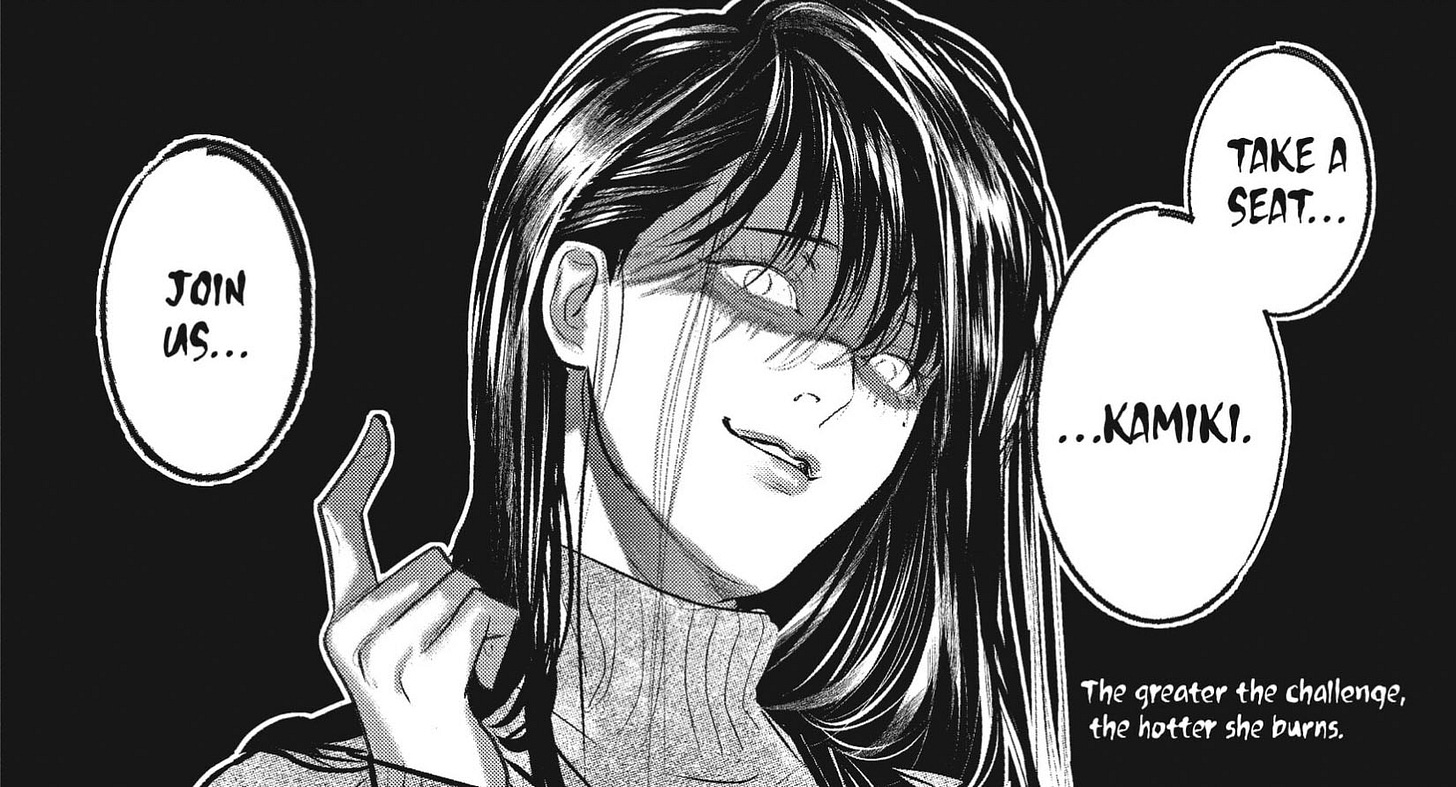





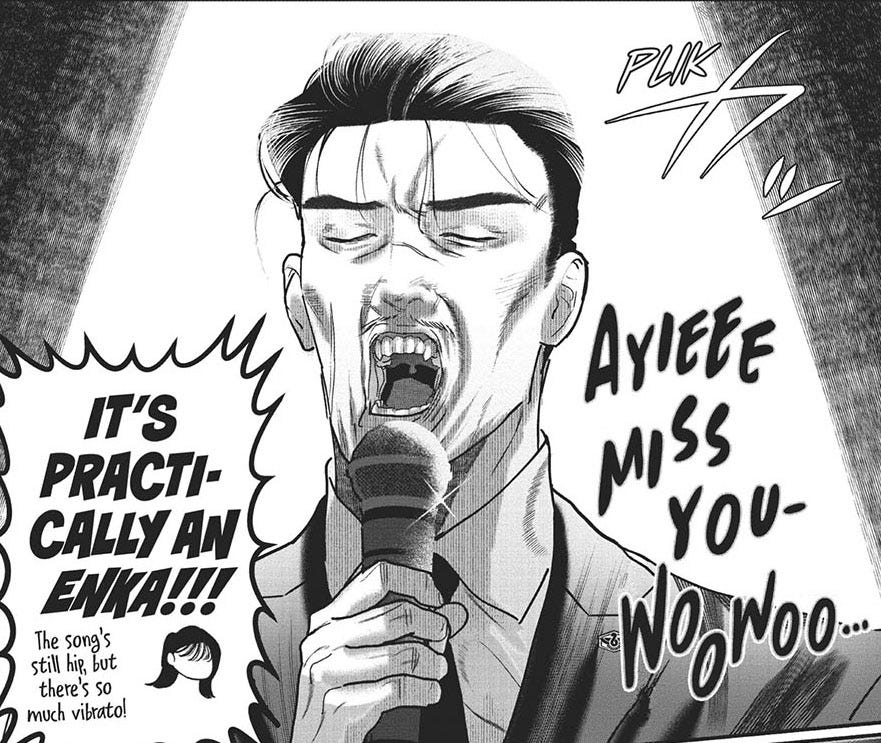


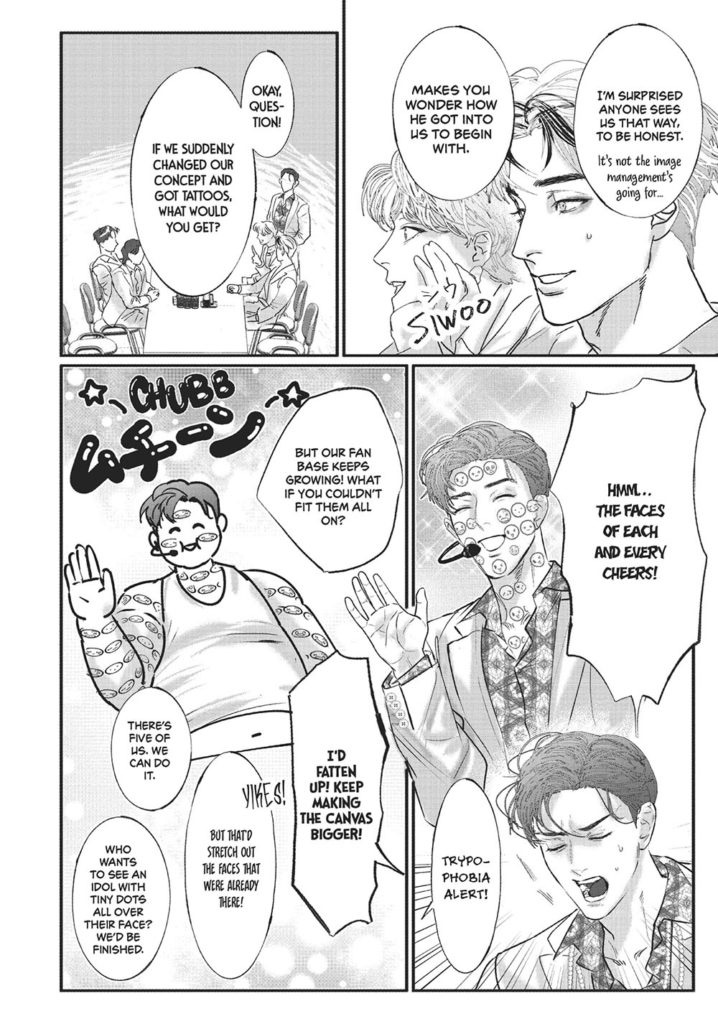





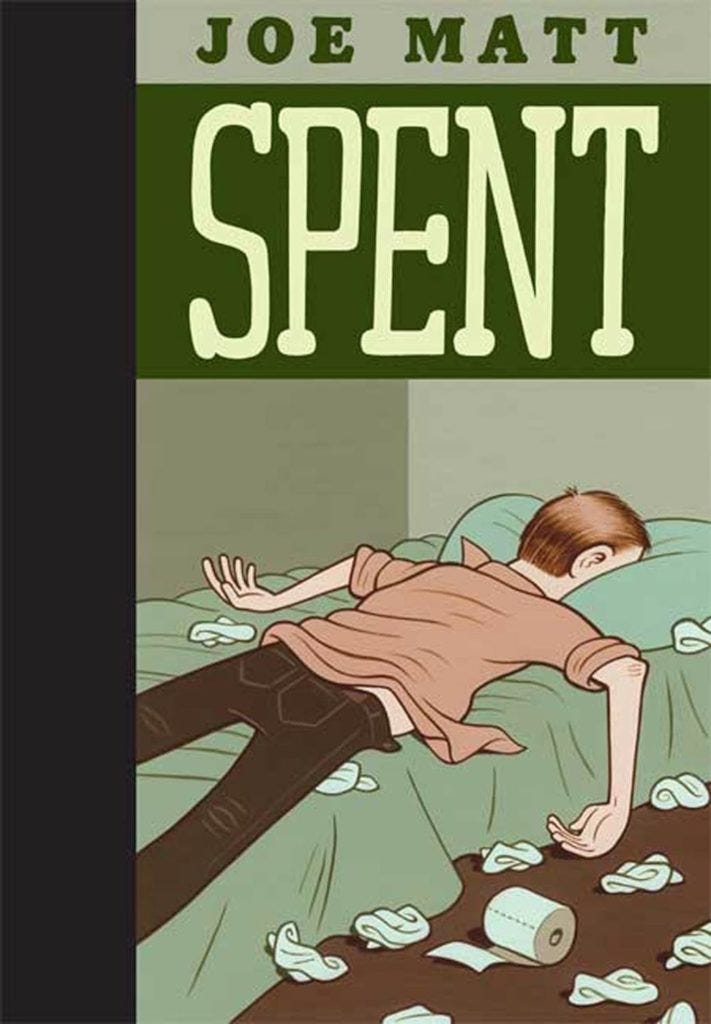


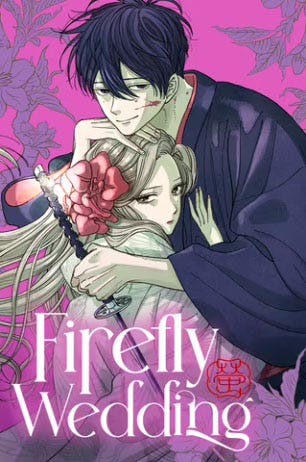


Hey! The discussion about masculine v feminine fandom reminded me of an old theory I remember from ~2012 Tumblr about "transformative vs curative fandom" (https://fanlore.org/wiki/Curative_Fandom, https://fanlore.org/wiki/Transformational_Fandom), which even has a paper by a grad student (https://www.academia.edu/32749631/Gender_Dynamics_in_Fandom_The_Gender_Theory_Behind_Curative_and_Creative_Fandoms).
I tend to think it's a bit of a false dichotomy, but there is still a kernel of truth there about what kinds of affection men and women are allowed to show for things.